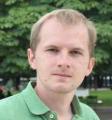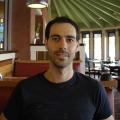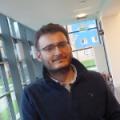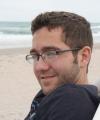In 2017, we have a number of competitions ranging from different types of optimization problems to games and computational creativity. If you are interested in one or the other competition, please follow the links to their respective web pages (see list below).
| Title | Organizers |
|---|---|
| Black Box Optimization Competition |
|
| Industrial Challenge: Monitoring of drinking-water quality |
|
| MicroRTS AI Competition |
|
| Niching Methods for Multimodal Optimization |
|
| Optimisation of Problems with Multiple Interdependent Components |
|
| The General Video Game AI Competition |
|
| Virtual Creatures |
|
Black Box Optimization Competition
Description:
The Black Box Optimization Competition is the first competition platform in the continuous domain where test problems are truly black boxes to participants. The only information known to the optimizer and participant is the dimension of the problem, bounds on all variables, and a budget of black box queries.
The competition is also the first web/online optimization competition in evolutionary computation domain. It aims at attacking a growing impact of over-fitting of optimization algorithms to a narrow set of existing benchmark problems. The competition was run three times with a total of 100 submissions.
Submission deadline:
June 30, 2017Official webpage:
http://bbcomp.ini.rub.deOrganizers:
Ilya Loshchilov
Ilya Loshchilov is a research scientist in the Research Group on Learning, Optimization, and Automated Algorithm Design at University of Freiburg. He holds a PhD from INRIA and University of Paris Sud. His research interests include stochastic black-box optimization and machine learning.
Tobias Glasmachers
Tobias Glasmachers is a junior professor at Ruhr-University Bochum, Germany. He received his diploma (2004) and his doctorate degree (2008) from the Mathematics department of the Ruhr-University. Then he joined the swiss AI lab IDSIA for two years as a post-doc and then returned to Bochum in 2012. His research is located in the areas of supervised machine learning and optimization in continuous spaces, in particular with evolution strategies. His work on randomized search heuristics is focused on natural evolution strategies (NES) as well as on multi-objective optimization.
Industrial Challenge: Monitoring of drinking-water quality
Description:
Water covers 71% of the Earth's surface and is vital to all known forms of life. The provision of safe and clean drinking water to protect public health is a natural aim. Performing regular monitoring of the water-quality is essential to achieve this aim.
Goal of the GECCO 2017 Industrial Challenge is to analyze drinking-water data and to develop a highly efficient algorithm that most accurately recognizes diverse kinds of changes in the quality of our drinking-water.
Submission deadline:
June 30, 2017Official webpage:
http://www.spotseven.de/gecco-challenge/gecco-challenge-2017/Organizers:
Martina Friese
MicroRTS AI Competition
Description:
Several AI competitions organized around RTS games have been organized in the past (such as the ORTS competitions, and the StarCraft AI competitions), which has spurred a new wave of research in to RTS AI. However, as it has been reported numerous times, developing bots for RTS games such as StarCraft involves a very large amount of engineering, which often relegates the research aspects of the competition to a second plane. The microRTS competition has been created to motivate research in the basic research questions underlying the development of AI for RTS games, while minimizing the amount of engineering required to participate. Also, a key difference with respect to the StarCraft competition is that the AIs have access to a "forward model" (i.e., a simulator), with which they can simulate the effect of actions or plans, thus allowing for planning and game-tree search techniques to be developed easily. Although we acknowledge that planning in domains for which the agent does not have a forward model is a very important problem, this is left out of this competition, in order to focus on other core RTS problems.
Submission deadline:
June 16, 2017Official webpage:
https://sites.google.com/site/micrortsaicompetition/Organizers:
Santiago Ontanion
Santiago Ontañón is an assistant professor in the Computer Science Depart- ment at Drexel University. His main research interests are game AI, case- based reasoning and machine learning, fields in which he has published more than 150 peer-reviewed papers. He obtained his PhD from the Autonomous University of Barcelona (UAB), Spain. Before joining Drexel University, he held postdoctoral research positions at the Artificial Intelligence Research Institute (IIIA) in Barcelona, Spain, at the Georgia Institute of Technology (GeorgiaTech) in Atlanta, USA, and at the University of Barcelona, Spain.
Niching Methods for Multimodal Optimization
Description:
The aim of the competition is to provide a common platform that encourages fair and easy comparisons across different niching algorithms. The competition allows participants to run their own niching algorithms on 20 benchmark multimodal functions with different characteristics and levels of difficulty.
Researchers are welcome to evaluate their niching algorithms using this benchmark suite, and report the results by submitting a paper to the main tracks of GECCO 2017 (i.e., submitting via the online submission system of GECCO 2017). The description of the benchmark suite, evaluation procedures, and established baselines can be found in the following technical report:
X. Li, A. Engelbrecht, and M.G. Epitropakis, ``Benchmark Functions for
CEC'2013 Special Session and Competition on Niching Methods for Multimodal
Function Optimization'', Technical Report, Evolutionary Computation and
Machine Learning Group, RMIT University, Australia, 2013.
The test suite for the competition and the performance measures are implemented in Matlab, Java, Python and C++, and will be available for download from the competition website (URL will be provided later). Notice that, apart from the benchmark function suite, the competition facilitates the evaluation and comparison of different niching algorithms. The procedures
developed takes into consideration two main objectives: 1) the test suite should be simple to use; and 2) the test suite can be used to facilitate fair comparisons of different niching algorithms. The procedure should be easy to follow since user interaction with unnecessary details will be kept at minimal. This will allow interested researchers to focus their effort primarily on the development of state-of-the-art niching algorithms. A framework with such facilities has already proved to be valuable to the research community and has led to major developments of the field, e.g., the Black-Box Optimization Benchmark (BBOB) competition organized at GECCO each year.
Submission deadline:
July 09, 2017Official webpage:
http://www.epitropakis.co.uk/gecco2017/Organizers:
Michael Epitropakis
Michael G. Epitropakis received his B.S., M.S., and Ph.D. degrees from the Department of Mathematics, University of Patras, Patras, Greece. Currently, he is a Lecturer in Foundations of Data Science at the Data Science Institute and the Department of Management Science, in Lancaster University, Lancaster, UK. His current research interests include operations research, computational intelligence, evolutionary computation, swarm intelligence, machine learning and search-based software engineering. He has published more than 30 journal and conference papers. He is an active researcher on Multimodal Optimization, co-organizing series of workshops, special sessions, and competitions on Niching Methods for Multimodal Optimization in top tier Evolutionary Computation conferences. He is one of the founders and currently chairing the IEEE CIS Task Force on Multi-modal Optimization. He is an active member of the IEEE Computational Intelligence Society and the ACM SIGEVO.
Mike Preuss
Mike Preuss is Research Associate at ERCIS, University of Muenster, Germany. Previously, he was with the Chair of Algorithm Engineering at TU Dortmund, Germany, where he received his PhD in 2013. His research interests focus on the field of evolutionary algorithms for real-valued problems, namely on multimodal and multiobjective optimization. He is also active in computational intelligence methods for computer games, especially in procedural content generation (PGC) and realtime strategy games (RTS).
Xiaodong Li
Xiaodong Li received his B.Sc. degree from Xidian University, Xi'an, China, and Ph.D. degree in information science from University of Otago, Dunedin, New Zealand, respectively. Currently, he is a full professor at the School of Science (Computer Science and Software Engineering), RMIT University, Melbourne, Australia. His research interests include evolutionary computation, neural networks, complex systems, multiobjective optimization, and swarm intelligence. He serves as an Associate Editor of the IEEE Transactions on Evolutionary Computation, Swarm Intelligence (Springer), and International Journal of Swarm Intelligence Research. He is a founding member of IEEE CIS Task Force on Swarm Intelligence, a Vice-chair of IEEE CIS Task Force of Multi-Modal Optimization, and a former Chair of IEEE CIS Task Force on Large Scale Global Optimization. He was the General Chair of SEAL'08, a Program Co-Chair AI'09, and a Program Co-Chair for IEEE CEC’2012. He is the recipient of 2013 ACM SIGEVO Impact Award and 2017 IEEE CIS "IEEE Transactions on Evolutionary Computation Outstanding Paper Award".
Andries Engelbrecht
Andries Engelbrecht is a Full Professor in Computer Science at the Department of Computer Science, University of Pretoria,and South African Research Chair in AI. He manages a research group of 40 Masters and PhD students, most of whom do research in swarm intelligence. He has recently authored a book, “Fundamentals of Computational Swarm Intelligence”, published by Wiley. He is also the author of a book, “Computational Intelligence: An Introduction”, also published by Wiley. He has presented tutorials on PSO and Coevolutionary methods for evolving game agents at IEEE CEC 2005 and IEEE CIG 2005 respectively. He is co-presenter of a tutorial on PSO and DE at IEEE CEC 2007, and PSO at GECCO 2007. He also presented PSO tutorials at ACISS and ACAL 2010, CEC 2009, CEC 2012, CEC 2013, GECCO 2013, and to a number of universities. He has published approximately 200 papers in the last decade, serves as a reviewer for a number of conferences and journals, and is an associate-editor of IEEE TEC, IEEE TCIAIG, ans Swarm Intelligence, and serves on the editorial board of three other journals. He served as a member of a large number of conference program committees, and is in the organizing committee of several conferences.
Optimisation of Problems with Multiple Interdependent Components
Description:
Motivation
Real-world optimization problems often consist of several NP-hard combinatorial optimization problems that interact with each other. Such multi-component optimization problems are difficult to solve not only because of the contained hard optimization problems, but in particular, because of the interdependencies between the different components. Interdependence complicates a decision making by forcing each sub-problem to influence the quality and feasibility of solutions of the other sub-problems. This influence might be even stronger when one sub-problem changes the data used by another one through a solution construction process. Examples of multi-component problems are vehicle routing problems under loading constraints, the maximizing material utilization while respecting a production schedule, and the relocation of containers in a port while minimizing idle times of ships.
The goal of this competition is to provide a platform for researchers in computational intelligence working on multi-component optimization problems. The main focus of this competition is on the combination of Traveling Salesperson and Knapsack problems. However, we plan to extend this competition format to more complex combinations of problems (that have typically been dealt with individually in the past decades) in the upcoming years.
The set of benchmarks used in this competition follows the idea of the "Travelling Thief Problem" (Mohammad Reza Bonyadi, Zbigniew Michalewicz, Luigi Barone: The travelling thief problem: The first step in the transition from theoretical problems to realistic problems. IEEE Congress on Evolutionary Computation 2013). Eucledian 2D Traveling Salesperson instances are combined with 0-1-Knapsack instances in such a way that it reflects aspects of problems from the real-world; for example, the total weight of the items in the knapsack influences the travel speed of a traveller. This introduced interdependence sets our benchmarks apart from capacitated vehicle routing problem instances, where this interdependence does not exist. For technical details on how the benchmarks were created, please see the manual (Sergey PoIyakovskiy, Mohammad Reza Bonyadi, Markus Wagner, Frank Neumann, and Zbigniew Michalewicz: A Comprehensive Benchmark Set and Heuristics for the Traveling Thief Problem. Genetic and Evolutionary Computation Conference 2014). Some related work can be found at the University of Adelaide’s TTP Project Page (http://cs.adelaide.edu.au/~optlog/research/ttp.php).
All 9720 instances are available for researchers to experiment with: http://cs.adelaide.edu.au/~optlog/CEC2014COMP_InstancesNew/
In order to encourage researchers during the weeks before the submission deadline, we invite them to submit solutions for a few selected sample instances. These results will be displayed online (without a reference to the authors) and then will serve as performance indications for other researchers. An example of how this informal ladder for a single instance can look like:
Pages of the previous competitions:
2014 http://cs.adelaide.edu.au/~optlog/CEC2014Comp/
2015 http://cs.adelaide.edu.au/~optlog/CEC2015Comp/
2017 http://cs.adelaide.edu.au/~optlog/TTP2017Comp/
Evaluation
In contrast to previous years, we will not run the code, and we will also not impose any resource limits. The participants will send us the solutions (one solution per instance) in the pre-defined format. This relaxation has the advantage that researchers are no longer bounded by the established “10 minutes of 1 CPU core”, opening up the research on multi-component problems to new approaches.
Tracks
Track 1: The original TTP formulation is used.
Track 2: A relaxed TTP formulation is used, in which not all cities need to be visited and more than one thief can be used (Shelvin Chand, Markus Wagner: Fast Heuristics for the Multiple Traveling Thieves Problem. Genetic and Evolutionary Computation Conference 2016).
In both tracks, the same 9720 instances will be used.
Prize
Markus Wagner provides AUD 1000 in cash. Additional sponsors are being sought right now.
Submission deadline:
June 16, 2017Official webpage:
Organizers:
Markus Wagner
Markus Wagner is a Senior Lecturer at the School of Computer Science, University of Adelaide, Australia. He has done his PhD studies at the Max Planck Institute for Informatics in Saarbruecken, Germany and at the University of Adelaide, Australia. His research topics range from mathematical runtime analysis of heuristic optimisation algorithms and theory-guided algorithm design to applications of heuristic methods to renewable energy production, professional team cycling and software engineering. So far, he has been a program committee member 30 times, and he has written over 70 articles with over 70 different co-authors. He has chaired several education-related committees within the IEEE CIS, is Co-Chair of ACALCI 2017 and General Chair of ACALCI 2018.
Wanru Gao
Wanru Gao studied Software Engineering is Adelaide, Australia. She received her bachelor degree and Ph.D. from the University of Adelaide. She is currently a lecturer in the School of Computer Science, the University of Adelaide, Australia. She is also a postdoctoral research associate in the Optimisation and Logistics group working on the parameterised analysis of bio-inspired computing. Her research interests include combinatorial optimization, diversity maximization in evolutionary algorithms and theoretical analysis of heuristic search methods.
The General Video Game AI Competition
Description:
The GVG-AI Competition explores the problem of creating controllers for general video game playing. How would you create a single agent that is able to play any game it is given? Could you program an agent that is able to play a wide variety of games, without knowing which games are to be played?
Submission deadline:
June 15, 2017Official webpage:
http://www.gvgai.net/Organizers:
Diego Perez
Simon M. Lucas
Spyridon Samothrakis
Julian Togelius
Julian Togelius is Associate Professor at the Center for Computer Games Research, IT University of Copenhagen, Denmark. He works on all aspects of computational intelligence and games and on selected topics in evolutionary computation and evolutionary reinforcement learning. His current main research directions involve search-based procedural content generation in games, game adaptation through player modelling, automatic game design, and fair and relevant benchmarking of game AI through competitions. He is a past chair of the IEEE CIS Technical Committee on Games, and an associate editor of IEEE Transactions on Computational Intelligence and Games. Togelius holds a BA from Lund University, an MSc from the University of Sussex, and a PhD from the University of Essex.
Tom Schaul
Tom Schaul completed his PhD in 2011 under Juergen Schmidhuber at IDSIA/TU-Munich, and moved on to a postdoc under Yann LeCun at NYU. His many research interests include reinforcement learning (in particular modular RL), stochastic gradient algorithms (in particular tuning-free or adaptive ones), black-box optimization algorithms based on search distributions (namely Natural Evolution Strategies), game benchmarks, as well as data with temporal structure and recurrent neural networks. He has published over 40 papers, with two dozen coauthors, and some of them got best paper awards. Tom is also a core developer of PyBrain, a popular RL and neural networks library.
Virtual Creatures
Description:
The Virtual Creatures Competition will be held in the competition session at the Genetic and Evolutionary Computation Conference. The contest's purpose is to highlight progress in virtual creatures research and showcase evolutionary computation's ability to craft interesting well-adapted creatures with evolved morphologies and controllers. Video entries demonstrating evolved virtual creatures will be judged by technical achievement, aesthetic appeal, innovation, and perceptual animacy (perceived aliveness).
Submission deadline:
June 30, 2017Official webpage:
https://www.cs.utexas.edu/~joel/virtual_creatures_contest2016/submit/Organizers:
Joel Lehman
Joel Lehman is an assistant professor at the IT University in
Copenhagen, Denmark. He recieved his bachelor's degree from the Ohio
State University in 2007, and his Ph.D. from the University of Central
Florida in 2012. He is co-author of the popular science book "Why
Greatness Cannot be Planned: The Myth of the Objective," and is an
inventor of the novelty search algorithm. Other research interests
include neuroevolution, artificial life, and open-ended evolution.
Sebastian Risi
Sebastian Risi is an Associate Professor at the IT University of Copenhagen where he is part of the Center for Computer Games Research and the Robotics, Evolution and Art Lab (REAL). His interests include computational intelligence in games, neuroevolution, evolutionary robotics and human computation. Risi completed his PhD in computer science from the University of Central Florida. He has won several best paper awards at GECCO, EvoMusArt, IJCNN, and the Continual Learning Workshop at NIPS for his work on adaptive systems, the HyperNEAT algorithm for evolving complex artificial neural networks, and music generation.
Nicholas Cheney
Nick Cheney is a PhD Candidate in Computation Biology at Cornell University, advised by Steve Strogatz. He is a member of the Columbia Creative Machines Lab, advised by Hod Lipson. He is currently a visiting fellow at the Vermont Complex Systems Center, where he works with Josh Bongard. He is also a NASA Space Technology Fellow, where he is mentored by Vytas SunSpiral at NASA Ames. Nick's research focuses on the role and optimization of morphology in embodied artificial intelligence, and its implications on cognitive robotics. Nick is also passionate about scientific visualization, and videos of his research on evolved soft robots have won both of the previous GECCO Virtual Creatures Competitions, as well as prizes at the AAAI, IJCAI, and ALIFE conferences. His work has been covered by popular media outlets, such as Popular Science and Discover, and has been the subject of popular speaking engagements, such as TEDx and PechaKucha.













